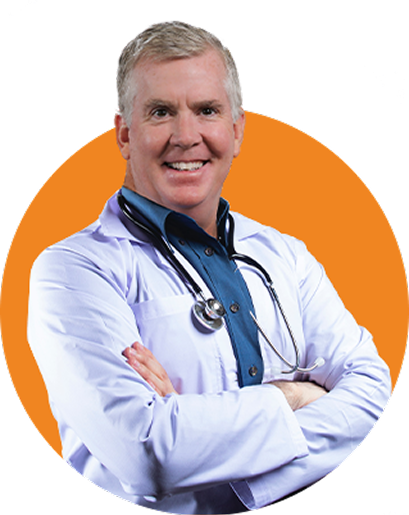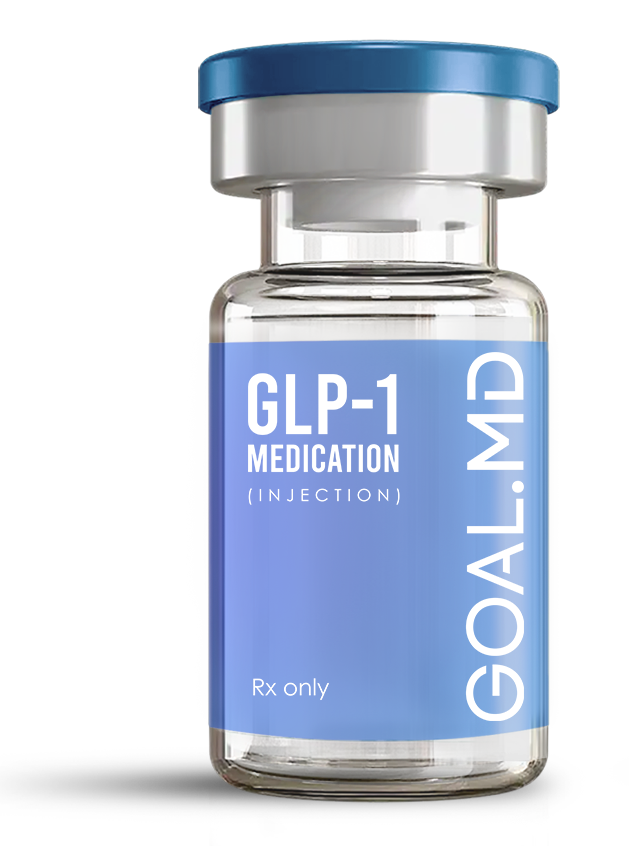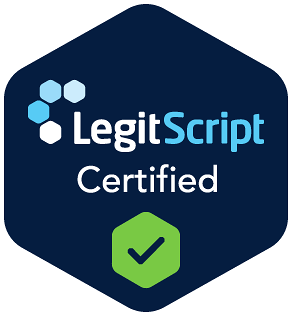
GOAL.MD Health & Wellness Blog
Evidence-based insights, medical weight loss information, and practical tips from our physicians and healthcare experts.

What to Eat the Day After Traveling While on GLP-1s
Why Travel Throws You Off (Even on GLP-1s)
After a trip, it’s completely normal to feel a little bloated, sluggish, or just… off. Between long flights, salty airport food, fewer veggies, and sleep disruptions, your body ends up dehydrated and out of rhythm.
If you’re taking semaglutide or tirzepatide, those changes can hit even harder. Since GLP-1s slow digestion, pairing that with travel stress, sitting for hours, and less movement can make your gut feel sluggish for a day or two.
👉 At Goal.md, patients learn that the best “detox” after travel isn’t about skipping meals or cleansing it’s about rebalancing with real nourishment.

1. Start With Hydration (and Electrolytes)
Forget the juice cleanse. What your body actually needs right now is water. Travel dehydrates you more than you think especially after flights, salty snacks, or long hours on the road.
✅ Try this simple reset routine when you wake up:
Drink 16–24 oz of water before breakfast.
Add a pinch of salt or an electrolyte packet if you’re feeling bloated, dizzy, or foggy.
Sip herbal tea or lemon water throughout the morning for gentle hydration.
By midday, you’ll probably notice your energy lift and digestion start to calm down just from getting fluids back in balance.
2. Choose Easy-to-Digest Meals
Your stomach might still be on “travel time,” so go easy on it. Choose foods that are simple, light, and nourishing instead of heavy or greasy.
Here’s a sample back-home day of meals to help you reset:
Breakfast: Greek yogurt with chia seeds and berries
Snack: A banana or a boiled egg
Lunch: Chicken and vegetable soup, or a protein smoothie
Dinner: Baked salmon with steamed greens and a small serving of brown rice
👉 At Goal.md, the focus isn’t perfection it’s stability.Your body just needs a little structure to find its rhythm again.
3. Focus on Protein and Fiber
Even if your appetite’s low, your body still needs nutrients to recover from travel. Protein and fiber work together to stabilize blood sugar, reduce cravings, and support digestion.
Try adding:
Lean proteins like fish, eggs, tofu, or grilled chicken
Fiber-rich foods like oats, greens, chia seeds, or lentils
✅ The protein helps rebuild strength and balance hormones, while fiber gently gets your digestion moving again without overwhelming your stomach.
4. Don’t Overcompensate With Restriction
It’s easy to think, “I overate while traveling now I’ll make up for it.” But eating too little the next day can actually slow your metabolism and make you feel worse.
Instead of “detoxing,” focus on balance: small, steady meals that tell your body it’s safe and supported.
👉 Goal.md coaches remind patients that a weekend away doesn’t erase progress. But punishing your body for it can delay your recovery.
5. Support Digestion Gently
If you’re feeling bloated, constipated, or overly full (common on GLP-1s after travel), think gentle movement and hydration, not harsh remedies.
Try these small resets:
Sip warm fluids throughout the day.
Take a short walk after meals it helps your gut wake up.
Add magnesium-rich foods like spinach, almonds, or avocado.
Stay consistent with your GLP-1 dose (unless your provider says otherwise).
Your digestion just needs patience and a little kindness it will find its balance again.
6. Get Back Into Routine Slowly
After traveling, your body craves rhythm. Try to return to your normal sleep schedule, mealtimes, and hydration habits. Don’t push too hard just rebuild structure one step at a time.
It’s okay if the first day back feels off. You don’t need to “make up” for anything your goal is simply to come back to normal.
Final Thoughts
The day after traveling isn’t the time to punish yourself it’s the time to reconnect with your balance.
Drink your water. Eat light, nourishing meals. Move a little. Rest a lot.
GLP-1s help your body find that natural rhythm again, and part of that rhythm is flexibility—for holidays, travel, and real life.
By tomorrow, your body will be back on track you just have to give it what it needs.
✅ Medically Reviewed by Dr. Michael Fitch, MD
Last Reviewed: October 24, 2025
This article haD physician protocols. Individual results and recommendations may vary. Always consult a licensed clinician before beginning any medical pros been medically reviewed for accuracy and consistency with current clinical practice guidelines. All treatment descriptions reflect real GOAL.MD gram.

Dr. Michael Fitch, MD
Physician, GOAL.MD – Board-Certified in Internal Medicine
Dr. Fitch has treated thousands of patients using evidence-based medical weight-management therapies including GLP-1 and longevity-focused medications. He leads GOAL.MD’s national physician network and personally oversees treatment protocols for weight loss, metabolic health, and nutrition optimization.
👉 Click here and get started with Goal.md
The GOAL.MD blog is published by GOAL.MD, a medical practice dedicated to personalized, patient-centered weight management and metabolic health. Our mission is to make evidence-based care accessible through licensed providers and modern telemedicine services, empowering individuals to reach their health goals safely and sustainably. Any general health information shared on our blog, website, or social channels is provided for educational and informational purposes only. It should not be considered medical advice, diagnosis, or treatment. The content is not a substitute for consultation with a qualified healthcare professional who can provide individualized recommendations based on your specific medical history and needs. GOAL.MD and its affiliated providers make no representations or warranties and expressly disclaim all liability for any loss, injury, or damage resulting from reliance on the information provided herein. If you have questions about your health or a medical condition, please consult with a licensed medical professional before making changes to your medication, treatment plan, or lifestyle.
Why GOAL.MD?
✅ Sourced from audited 503a US compounding pharmacies.
✅ Custom dosages adjusted to your needs.
✅ Free consultation + 24/7 support.

How It Works
1. Quiz
90 seconds. No commitment.
2. Consult
Video chat with your GOAL.MD doctor.
3. Deliver
Meds at your door tomorrow.
Transform Your Life with Physician-Directed Care
Join thousands who've found success with physician-directed care. Take our 3-minute quiz to see if medical weight loss is right for you.







